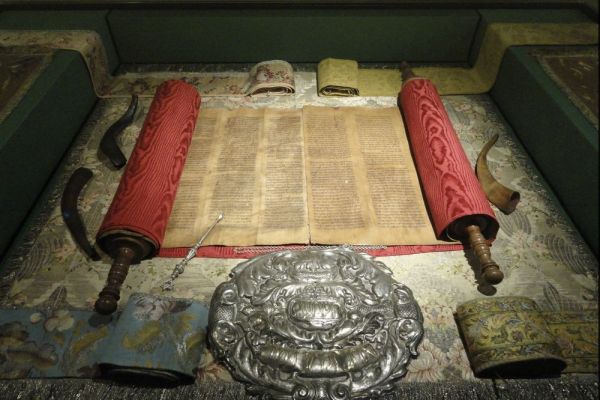(2 Cor 4:13 - 5:1)
2Corinthians 4:13 Animated, however, by that same spirit of faith of which it is written: I believed, therefore I spoke, we also believe and therefore we speak,
2Corinthians 4:14 Convinced that he who raised the Lord Jesus will also raise us with Jesus and place us beside him with you.
2Corinthians 4:15 For all things are for you, that grace, even more abundant through greater numbers, may multiply the hymn of praise to the glory of God.
Paul begins by showing what motivates him to speak. He quotes Ps 115:10 'I believed even when I said: I am too miserable'. The psalmist emphasises that he believed even when he was in the situation of saying: 'I am too miserable', and goes on to say: 'every man is deceitful' (Ps 115:11). Even in that situation where I experienced that nobody helps me, I believed. Paul in the psalm that says: I believed "even when" I spoke, reads: I believed, "therefore" I spoke.
In the original form of the Hebrew there is an ambiguous expression that can be developed as causal or as temporal. The Greek developed it as causal, i.e. I believed "therefore" I spoke: "I am too unhappy". As if to say: 'I am too miserable precisely because I have believed'. Trusting in God brought me into a situation of suffering. Paul puts himself in the shoes of the ancient psalmist and says: the same thing happened to me, I live in that spirit of faith, I also believed and therefore I spoke. I am in a situation of misery precisely because I have believed and spoken.
Had Paul remained silent, he would have avoided the risks involved in his ministry, but faith and speech go together, for only those who are convinced of the truth of their message can afford to make it known. There would have been no church in Corinth if when Paul visited the city he had remained silent.
It habitually happens that when one makes an effort to be truthful and speak, they are made to pay for it. That is the price of truth; when one tries to be true and sincere and tries to help others to the truth, they make them pay. When one speaks, one must accept the consequences of what one says. I have believed, therefore I have spoken, and therefore I am too unhappy.
We are convinced that God, 'who raised Jesus, will also raise us with Jesus and place us beside him'. Paul says here that just as the risen Christ is glorified by the Father, so shall it be for believers. It is a very concrete discourse. Paul is absolutely firm in his conviction that God will give him reason and satisfaction by placing him alongside Jesus, but 'together with you', not against you. The Father who is in heaven, who raised Jesus Christ, will also raise us. There is only one action: the resurrection of Christ; in this resurrection the Father will raise every other man, indeed the resurrection of every man is the continuation of that one act performed by God upon the body of Jesus Christ.
We will not be separated from Christ, we will be with Christ. This will be our eternal joy, our joy that will never know an end. Paul waits for nothing more than this moment, which will be the moment of victory over death. Living by this faith for Paul means spending one's life so that all men may come to know this truth, so that they too may make it the principle of their life and the rule of their earthly existence.
On this I think we should all be a little more committed. Both by fulfilling Christ's resurrection in us through the holiness of life; and by using our energies to invite every man to let himself also be conquered by this faith in the resurrection of Jesus Christ. Only that life which is brought back in this beginning has value.
"For everything is for you, that grace, still more abundant by the work of a greater number, may multiply the hymn of praise to the glory of God." Everything is for the disciples of Jesus, everything happens for their benefit, everything is accomplished so that they may grow and abound in the truth of salvation. It is necessary, however, that the disciple of Jesus always knows how to discern the signs, how to read and interpret them; how to discover in them the truth that God puts into them. If he to whom grace is given, knows how to discern and receive it, a hymn of praise rises from his heart for the Lord, a hymn that celebrates and magnifies the glory of God.
What Paul wants us to understand is this: the duty to raise the hymn for the glorification of the Father must not be one's alone, it must be both those who have been instruments for the gift of grace and those who have received grace. One and all must glorify the Lord, must bless and exalt him.
We are all as one, bound to one another, walking on the one road that leads to eternal life, so that the grace given to one may be passed on to the others and so that thanksgiving to the glory of God may grow. Argentino Quintavalle, author of the books
- Revelation - exegetical commentary
- The Apostle Paul and the Judaizers - Law or Gospel?
Jesus Christ true God and true Man in the Trinitarian mystery
Jesus' prophetic discourse (Matthew 24-25)
All generations will call me blessed
Catholics and Protestants compared - In defence of the faith
(Buyable on Amazon)




